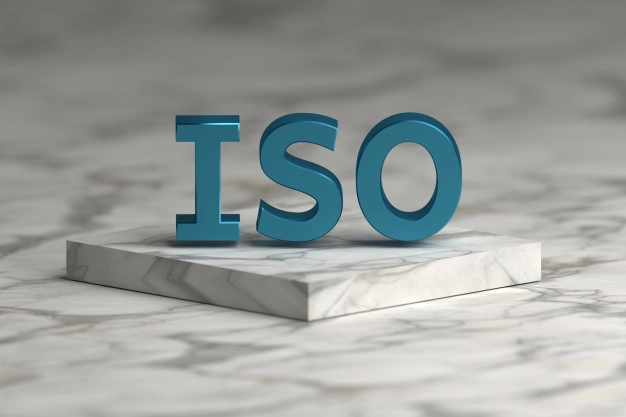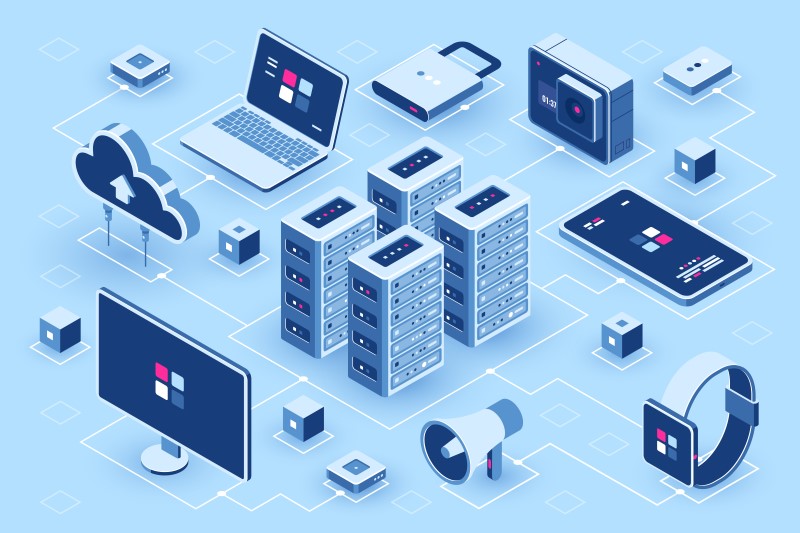Understanding Java Development Company
What is Java and Java Virtual Machine?
Java Development Company is one of the most popular solutions globally, known for its versatility, security, and robustness. At its core, Java runs on the Java Virtual Machine (JVM), which is an environment that allows Java programs to run on any device, regardless of the underlying hardware or operating system. This means developers can write code once and run it anywhere, a significant advantage called platform independence. Java is also an object-oriented programming (OOP) language, promoting code reuse and easy maintenance.
Why Choose Java for Your Project?
Java has been the backbone of software development for decades. Businesses choose Java due to its reliability, scalability, and the vast support network it offers. When hiring a Java development company, you’re tapping into a pool of developers experienced in delivering enterprise-grade applications, high-security software, and solutions capable of handling complex tasks like big data systems development.
Key Benefits of Using Java
Platform Independence and Cross-Platform Portability
One of the key benefits of Java is its ability to run on multiple platforms without needing major changes to the codebase. This cross-platform portability is thanks to the JVM. Developers write Java code once, and it runs anywhere—from Windows to Linux, Android, and beyond. This reduces development costs and accelerates time-to-market.
Robust Security APIs and Built-in Safety Measures
Java prioritizes security with robust security APIs and built-in safety features like bytecode verification and sandboxing. It ensures that Java applications are safeguarded against vulnerabilities like SQL injection and cross-site scripting (XSS). These APIs provide secure communication, authentication, and data integrity, critical for finance, healthcare, and government projects.
Multithreading Capabilities for Better Performance
Java supports multithreading capabilities, enabling applications to perform multiple operations simultaneously. This boosts application performance, making it ideal for complex tasks such as real-time data processing and responsive user interfaces. Multithreading also allows efficient use of system resources, vital for scalable applications.
Reliability and Backward Compatibility
Java offers excellent reliability and backward compatibility, meaning new versions of Java can run older applications without issues. This reduces the cost of application maintenance and extends the lifecycle of software products, ensuring long-term ROI for businesses.
Vast Ecosystem and Rich API
The extensive Java ecosystem, including its rich API and libraries, simplifies development. Developers have access to tools for networking, database connectivity, XML parsing, and more. This means faster development cycles and more robust applications.
Java for Enterprise-Grade Applications
Advantages of Java EE and Java SE in Enterprise Applications
For enterprise-grade applications, Java provides Java EE (Enterprise Edition) and Java SE (Standard Edition). Java EE includes APIs for building scalable and secure enterprise solutions, including transaction management, messaging services, and web services. Java SE forms the base for all Java applications, offering a stable and secure environment.
Secure and Scalable Java Solutions
Java Development Company’s architecture supports secure and scalable Java solutions, essential for large-scale business needs. For instance, Java EE applications handle extensive workloads, multiple users, and complex processes efficiently. This makes Java the go-to for critical business functions like banking, e-commerce, and telecommunication.
Java in Big Data Systems Development
Integration with Big Data Technologies
Java integrates seamlessly with big data technologies like Apache Hadoop, Apache Spark, and Apache Kafka. This makes Java an excellent choice for big data systems development. It handles massive datasets, real-time analytics, and machine learning algorithms, providing robust solutions for data-intensive industries.
Case Studies and Client Success Stories
Successful Payment and Cash Management Systems
Many companies have succeeded by leveraging Java for payment and cash management systems. A notable example is a global bank that partnered with a Java development company to create a secure, scalable payment platform. It resulted in faster transaction processing, enhanced security, and improved customer satisfaction.
Expense Platform Customization and Ticketing Systems Integration
In another case, a travel company utilized Java for expense platform customization and ticketing systems integration. Java’s flexibility allowed for a highly customized user experience, easy integration with existing systems, and streamlined processes, boosting operational efficiency and customer retention.
Custom Java Development Solutions
Tailored Java/J2EE Software Development
Businesses often require custom solutions that match their unique needs. Java development companies offer tailored Java/J2EE software development, which begins with an in-depth analysis of business goals and requirement analysis. This ensures that the developed software aligns perfectly with business strategies, enhancing operational efficiency.
Custom Java Development Solutions
API Integrations for Data Security Management
Java’s robust architecture supports extensive API integrations for data security management, allowing seamless connections with other software, third-party applications, or cloud services. These integrations ensure that sensitive data remains protected while enabling efficient data exchange and operational agility. For example, a healthcare provider might utilize custom Java APIs to ensure compliance with HIPAA regulations, effectively managing patient data securely across multiple platforms.
Java Development Services Offered
Java Web Development and Java API Development
Java web development services are highly sought after due to Java‘s reliability and flexibility. Java development companies leverage frameworks like Spring and Struts to build dynamic, responsive, and secure websites or web applications. Additionally, Java API development is crucial for creating robust interfaces, enabling smooth interactions between different software components or third-party services, vital for businesses looking to scale operations seamlessly.
Java Migration Services and Application Maintenance
Another critical service is Java migration services, allowing businesses to modernize legacy systems, moving them onto Java-based platforms without losing essential data or functionality. These services ensure backward compatibility, minimal downtime, and enhanced performance post-migration. Post-development, companies provide ongoing Java application maintenance and support, ensuring regular updates, performance optimization, bug fixes, and essential security updates. This holistic support ensures business continuity and the longevity of software investments.
Java Technologies and Tools
Popular Java Frameworks: Spring, Hibernate, and Struts
Java‘s extensive ecosystem includes powerful frameworks that simplify and accelerate the development process. The Spring framework is known for its simplicity and support for microservices architecture, ideal for building scalable applications. Hibernate is widely used for efficient database management, simplifying interactions between Java applications and databases, enhancing data handling efficiency. Struts, though older, remains relevant for building robust web applications, especially where legacy systems need continued support and maintenance.
Tools and Libraries: Maven, Gradle, JUnit, Mockito
Java developers utilize a range of tools and libraries to streamline development, testing, and deployment processes. Apache Maven and Gradle are essential build tools, automating software build and release cycles, which reduces errors and saves valuable development time. Testing frameworks like JUnit and Mockito facilitate thorough testing, enabling developers to detect bugs early, improving software reliability and reducing post-deployment issues.
Java Development Process Explained
Agile Methodology and Flexible Development Processes
Java development company commonly follows the Agile methodology, emphasizing flexibility, adaptability, and iterative progress. This approach allows for ongoing client involvement, regular communication and collaboration, and adjustments based on timely feedback and updates. It ensures the final product aligns closely with evolving business needs, maintaining project timelines and budget control.
Milestones, Timelines, and Regular Communication
Establishing clear milestones and timelines is crucial in Java projects. Companies typically employ a structured yet flexible and adaptive development process, allowing room for changes without jeopardizing the project’s overall timeline. Regular communication through meetings, reports, and updates ensures that clients stay informed and any necessary adjustments can be made swiftly, minimizing project risks.
Security in Java Development
Importance of OWASP Standards and Bytecode Verification
Security remains paramount in Java development, particularly for enterprises dealing with sensitive data. Following OWASP (Open Web Application Security Project) standards ensures that Java applications adhere to the highest security guidelines, minimizing vulnerabilities like SQL injections or Cross-Site Scripting (XSS). Additionally, Java’s built-in bytecode verification adds another layer of security by checking code fragments for illegal instructions or memory violations before execution, ensuring that applications run securely within predefined limits.
Role of Testing: Unit Testing, Integration Testing, and Code Reviews
Robust testing is vital for securing Java applications. Unit testing ensures individual components work as intended, catching errors early in the development cycle. Integration testing verifies that combined modules function correctly together, critical for complex systems. Rigorous code reviews help identify security flaws, performance bottlenecks, and adherence to coding standards, fostering continuous improvement and high-quality outcomes.
Hiring Java Developers: Best Practices
Dedicated Java Development Team and Engagement Models
Hiring a dedicated Java development team ensures continuity, expertise, and alignment with business goals. Java development companies offer diverse engagement models, including fixed-cost, time-and-materials, or hybrid models tailored to specific project needs. Opting for a dedicated team provides businesses with access to top-tier talent, ongoing commitment, and specialized expertise, ensuring project success and scalability.
Flexible and Scalable Staffing Solutions
Businesses often have fluctuating development needs, and thus require flexible and scalable staffing solutions. Java companies often offer staff augmentation services, allowing businesses to scale their development teams up or down as needed. This approach reduces overhead costs, enhances agility, and enables rapid onboarding and scaling, ensuring businesses meet project demands without long-term commitments.
Frequently Asked Questions (FAQs)
What are the typical costs of Java Development Services?
The cost of Java development services varies based on project complexity, timeline, required resources, and location of the development team. On average, small to medium-sized Java projects range from $20,000 to $100,000, while enterprise-level projects may exceed $500,000. Engagement models, such as fixed-cost or time-and-material, also influence the final pricing.
How do Java companies manage project milestones?
Java development companies manage project milestones by establishing clear deliverables, deadlines, and regular communication channels. They employ Agile methodology, enabling iterative development, continuous feedback, and adjustments, ensuring that projects remain on track and within budget.
What post-development support is typically provided?
Post-development support typically includes ongoing maintenance, performance monitoring, bug fixes, security updates, and technical support. Companies also offer services like performance optimization and enhancements, ensuring the software remains updated and performs optimally over time.
What is involved in Java migration services?
Java migration services involve transferring legacy systems or applications from older technologies to Java platforms. It includes thorough feasibility studies, code conversion, data migration, testing, and ensuring backward compatibility. The goal is to modernize applications, improve performance, and enhance security.
How secure are Java applications?
Java applications are inherently secure due to built-in security features like bytecode verification, sandboxing, and robust security APIs. Following best practices, like adhering to OWASP guidelines, rigorous testing, and code reviews, ensures Java applications remain highly secure against vulnerabilities.
How can I assess a Java developer’s expertise?
Assessing a Java developer’s expertise involves reviewing their previous projects, checking relevant certifications (like Oracle Certified Professional or Spring Professional Certification), and conducting technical interviews. Practical assessments, code reviews, and understanding their familiarity with the latest tools, frameworks, and best practices are also crucial.
Conclusion
Hiring a Java development company offers numerous benefits, from platform independence and robust security to scalability and extensive support. Java development company‘s ecosystem, tools, and frameworks make it ideal for enterprise applications, big data systems, and custom software development. By selecting the right development partner and leveraging Java’s capabilities, businesses can achieve reliable, secure, and efficient solutions tailored to their unique needs.







